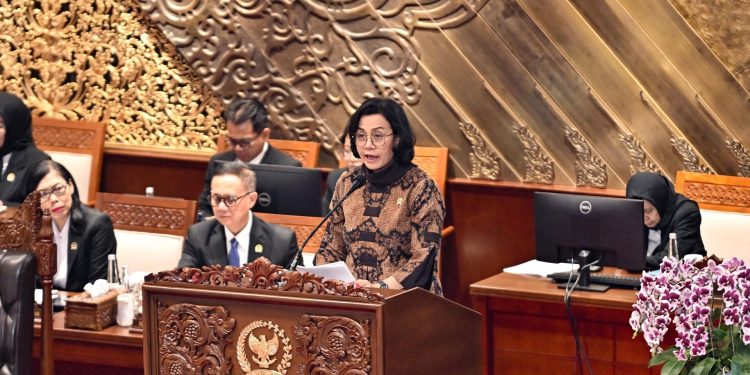Jakarta, Indonesia Sentinel — Indonesia’s Finance Minister Sri Mulyani Indrawati has officially issued a regulation requiring e-commerce platforms to collect Income Tax (PPh 22) from online sellers.
The policy, outlined in Minister of Finance Regulation (PMK) No. 37 of 2025, was signed on June 11, 2025, and came into force on July 14, 2025.
According to Rosmauli, Director of Outreach, Services, and Public Relations at the Directorate General of Taxes (DJP), the regulation aims to create a level playing field between digital and conventional businesses. It also seeks to simplify tax administration for online sellers and improve the efficiency and effectiveness of tax collection.
“We hope this will help micro and small business owners better comply with their tax obligations, ensure equal treatment, and support a fair and healthy digital economy,” Rosmauli said Monday (July 14), as reported by Antara.
Under the new rules, the Finance Ministry will appoint e-commerce platforms (designated as Electronic Trading System Organizers, or PPMSE) to collect a 0.5% income tax on the gross annual revenue of merchants who sell through their platforms. This levy is separate from value-added tax (VAT) and luxury goods tax (PPnBM), and it may be categorized as either final or non-final, depending on the case.
Read Also:
Indonesia to Impose New E-Commerce Tax Withholding Rule to Boost Revenue and Compliance
However, the tax will only apply to online sellers with annual revenue exceeding Rp500 million (approximately $30,000). Merchants must submit a declaration letter to the platform once their revenue crosses this threshold, no later than the end of the month in which it occurs.
Sellers earning below the Rp500 million threshold will be exempt from the levy. Certain types of digital transactions are also excluded, including logistics services, ride-hailing, prepaid phone credit sales, and gold trading.
Hestu Yoga Saksama, Director of Tax Regulation I at the Finance Ministry’s Directorate General of Taxes, said the regulation will be implemented gradually to allow platforms sufficient time to adjust.
“We’ve been in contact with major e-commerce platforms. They’re currently working to update their systems,” Hestu explained. “Once they’re ready, which may take one or two months, we’ll officially appoint them as tax collectors under the PMSE framework.”
(Raidi/Agung)


























